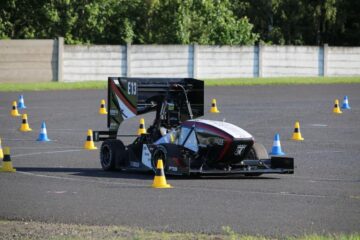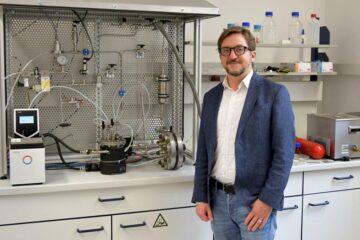KERatin – 3D skin model for autosomal recessive congenital ichthyosis (ARCI)

The pathophysiology of autosomal recessive congenital
ichthyosis (ARCI) is still large unknown. Treatment of this heterogeneous group of severe disorders is symptomatic and often insufficient. For pharmacological studies a patient independent model is needed, which mimics the barrier defect and hyperkeratosis typical to ARCI. Such skin model must develop and sustain a basal layer attached to the dermal layer and show a normal differentiation pattern. This invention discloses a 3D skin model for ARCI. To achieve close to physiological skin models cultivation conditions were modified. The model shows thin, normal stratum corneum, defined basal and granular layers and constant attachment to the normal layer. The expression of single genes involved in ARCI was knocked-down by transfection of keratinocytes with specific siRNA prior to 3D model generation. The resulting 3D skin models mimic congenital ichthyosis enabling pharmacological studies. Barrier defects, which are typical in ARCI, are modelled and have been characterised. This model can be used for testing of pharmaceuticals as well as of cosmetics. Commercial Opportunities We offer a patent license as well as a research collaboration with licensing option to innovative companies. Current status About the patent situation we would like to give the relevant information to you. Protocols for generation of 3D skin models as well as for knock-down of genes are available, samples can be provided.
Weitere Informationen: PDF
PROvendis GmbH
Tel.: +49 (0)208/94105 10
Ansprechpartner
Dipl.-Ing. Alfred Schillert
Media Contact
Alle Nachrichten aus der Kategorie: Technologieangebote
Neueste Beiträge

Ideen für die Zukunft
TU Berlin präsentiert sich vom 22. bis 26. April 2024 mit neun Projekten auf der Hannover Messe 2024. Die HANNOVER MESSE gilt als die Weltleitmesse der Industrie. Ihr diesjähriger Schwerpunkt…

Peptide auf interstellarem Eis
Dass einfache Peptide auf kosmischen Staubkörnern entstehen können, wurde vom Forschungsteam um Dr. Serge Krasnokutski vom Astrophysikalischen Labor des Max-Planck-Instituts für Astronomie an der Universität Jena bereits gezeigt. Bisher ging…

Wasserstoff-Produktion in der heimischen Garage
Forschungsteam der Frankfurt UAS entwickelt Prototyp für Privathaushalte: Förderzusage vom Land Hessen für 2. Projektphase. Wasserstoff als Energieträger der Zukunft ist nicht frei verfügbar, sondern muss aufwendig hergestellt werden. Das…

















